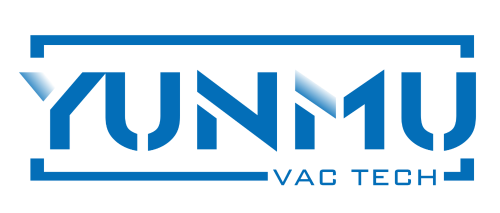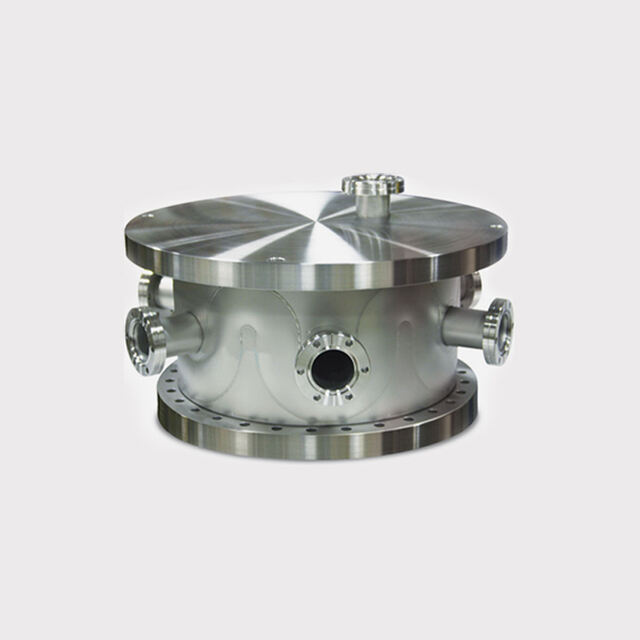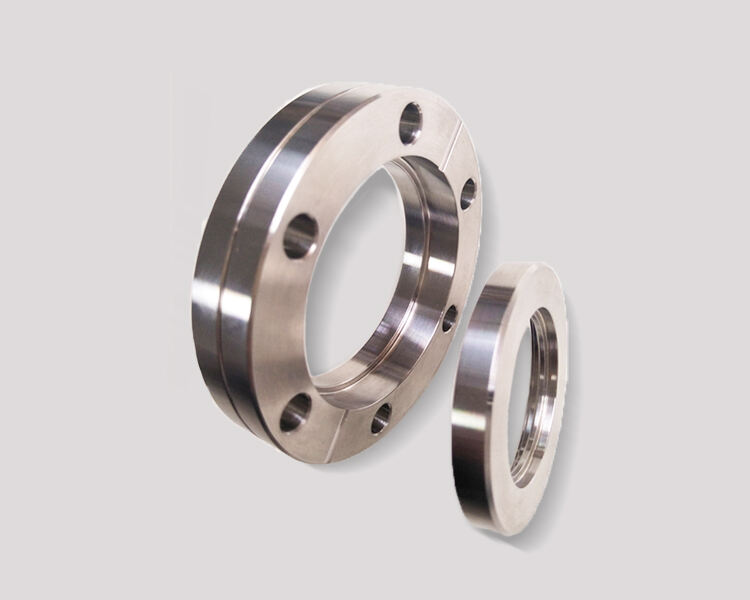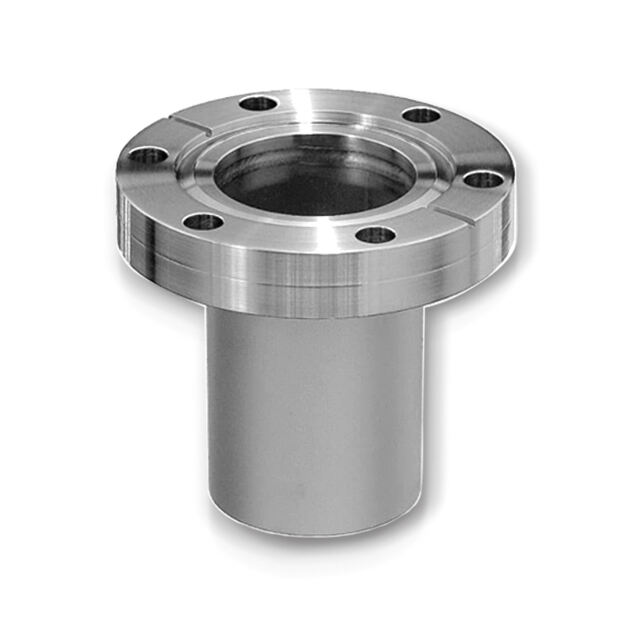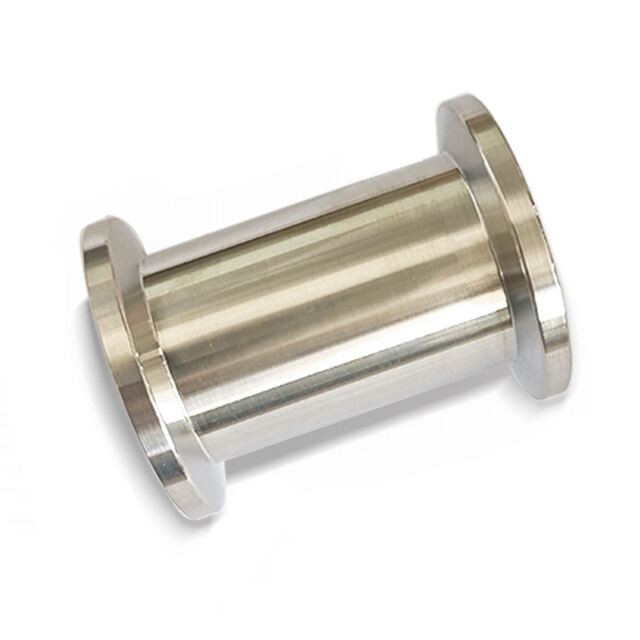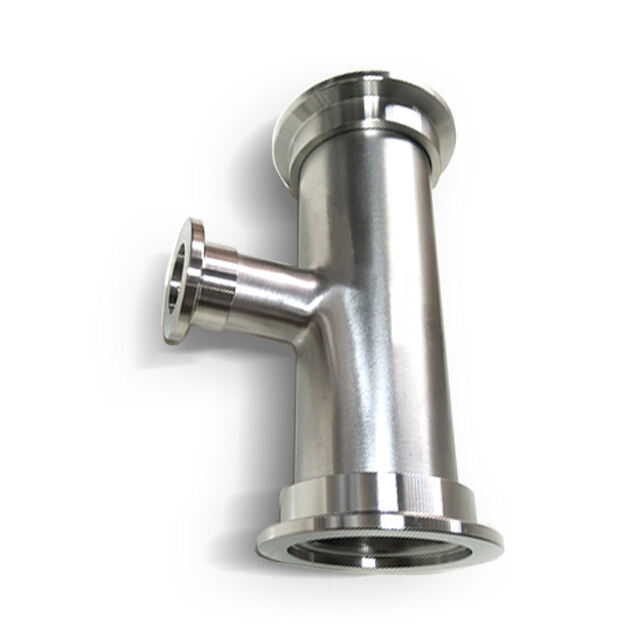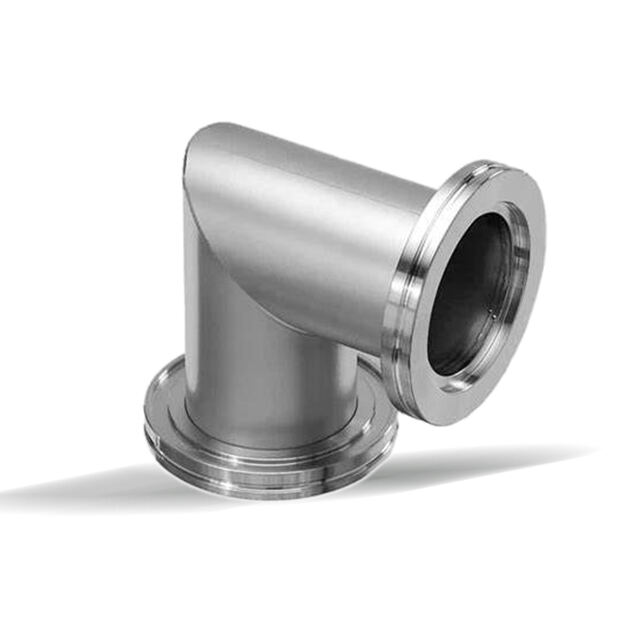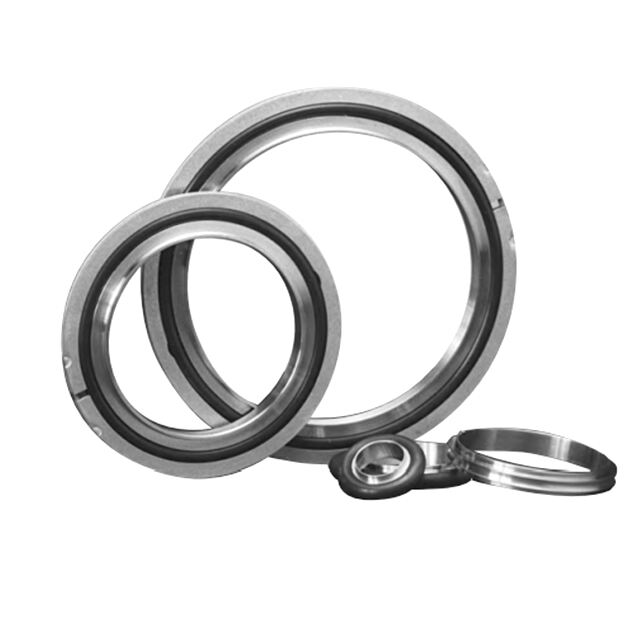- Overview
- Related Products
A bell jar vacuum chamber is a versatile piece of laboratory equipment designed to create and maintain a high vacuum environment. Resembling the shape of a traditional bell jar, these chambers can be constructed from various materials, including glass and different types of metals. Bell jar vacuum chambers are commonly used for classroom demonstrations or by hobbyists, particularly in applications where a lower-quality vacuum suffices. For advanced research requiring ultra-high vacuum conditions, more sophisticated vacuum chamber designs are necessary. Nevertheless, many experiments can be successfully conducted in a bell jar chamber when paired with an efficient vacuum pump and a system that maintains a low leak rate.
YM vacuum bell jar chambers are engineered for compatibility with flat baseplates, base wells, and feedthrough collars, all crafted from durable stainless steel. Customization options are available to meet specific requirements, including the number and size of ports, types of flanges, viewport configurations, O-ring materials, and surface finishes. These features ensure the chambers can be tailored to a wide range of applications, providing flexibility and precision for both educational and experimental purposes.
Technical Parameters of Common Vacuum Chambers:
1. Material: 304 stainless steel, 316L stainless steel, or customer-specified materials.
2. Operating temperature range: -190°C to +1500°C (water cooling required for high temperatures).
3. Sealing method: Fluorine rubber "O" rings or oxygen-free copper metal seals.
Factory Testing Procedures:
1. Vacuum leak rate test: Standard leak rate: 1.3×10⁻⁸ Pa·L/s.
2. Water cooling pressure test: Standard test pressure: 11.6psi, 24hour leak-free test.
Surface Treatments:
- Electropolishing
- Sandblasting
- Acid cleaning
- Mirror polishing.
If you need to order our vacuum chambers, please contact our professional sales team and provide the following information:
1. Whether the product generates heat during use, the specific high and low temperatures, and whether water or liquid nitrogen cooling is required.
2. Any special material requirements. Common materials for vacuum chambers include carbon steel, aluminum, 304 stainless steel, and 316 stainless steel.
3. Connection methods, vacuum pumping methods, and the type of vacuum pump used.
4. Vacuum level requirements and whether protective or other gases need to be introduced after vacuuming.
For more information on custom vacuum chambers or other YM vacuum chamber components, contact us and share your drawings. We’re here to assist with your requirements!
